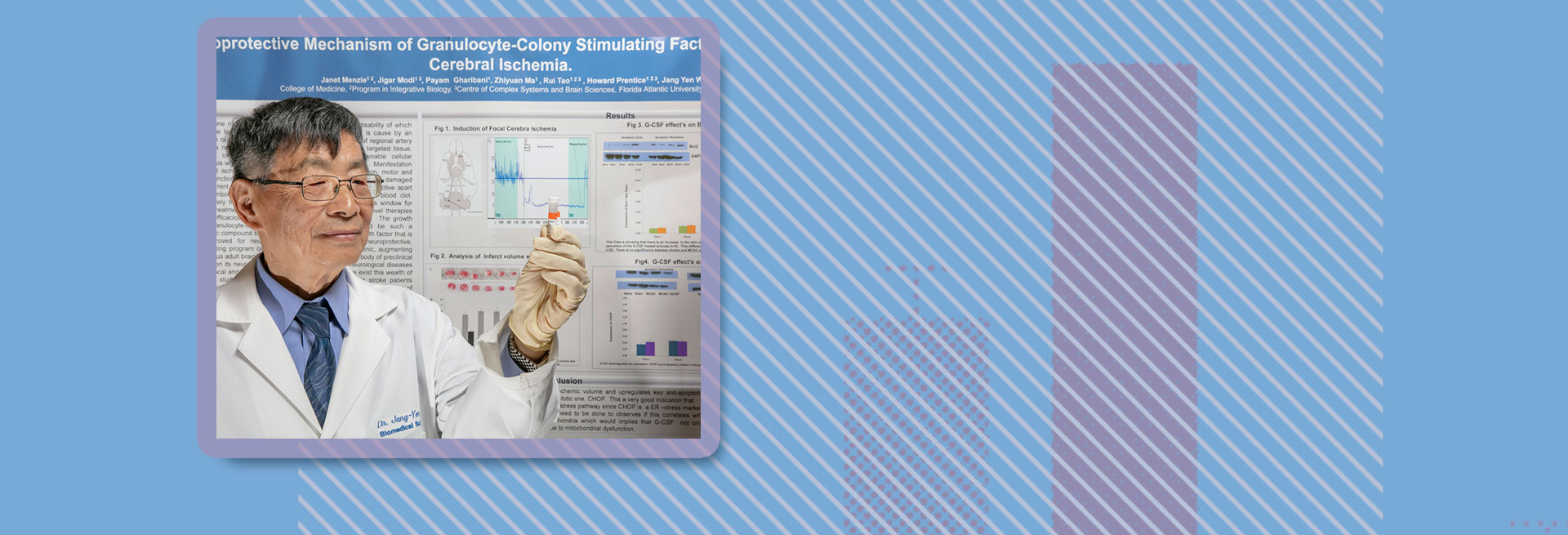By Jeff Brooks-Gillies
Jang-Yen Wu, Ph.D., a Senior Schmidt Fellow and professor of biomedical science in Florida Atlantic’s Charles E. Schmidt College of Medicine, is a prolific researcher of neurological diseases and no stranger to the patent process.
“He’s what I like to call a repeat customer,” said Dana Vouglitois, associate director of the Florida Atlantic Office of Technology Development.
Wu’s most recent discovery to earn a patent is a novel treatment for ischemic stroke. The patent describes the use of the compound carbamathione — called carb for short — to protect brain tissue and minimize the size of infarct associated with a stroke injury.
Part of what makes carb therapy for stroke so promising is that the compound is an active metabolite of the drug disulfiram, which has been approved by the Food and Drug administration since 1951 to treat alcohol dependence. As the byproduct of a drug that has been used safely for so long, carbamathione could be expected to similarly show minimal side effects.
Carbamathione targets the excess glutamate that is believed to be responsible for the death of neuronal cells following a stroke. While too much glutamate can cause excitotoxicity, it is an essential neurotransmitter for normal brain functions.
“Many glutamate antagonists have failed clinical trials because they blocked glutamate transmissions, which obviously has severe side effects,” Wu said. “And the drug that we have just developed is unique in a sense that it only partially antagonizes the glutamate receptor activity.”
